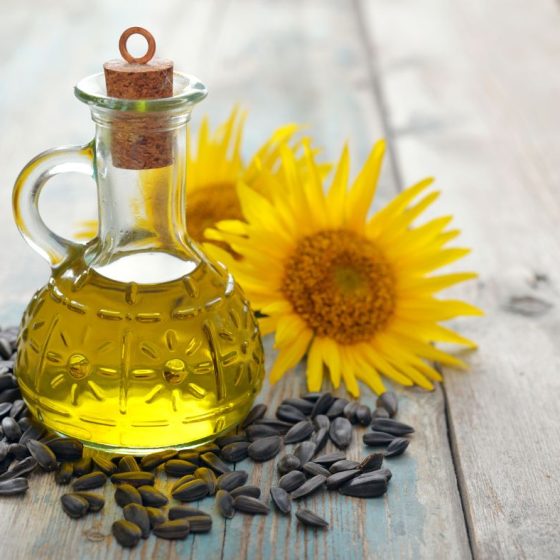
Let’s just start with a confession: I used to think seed oils were healthy. I mean, they’re made from plants, right? And flour? As long as it wasn’t white and came in a bag with the word “whole” slapped on it, I thought I was nailing the pantry game.
Fast forward to a rabbit hole of late-night reading, a few crunchy mum podcasts, and a pantry purge that rivalled my EMF detox episode, and well… now we need to talk. Because it turns out, your everyday cooking oil and that go-to flour might not be doing your body (or your kids’ tiny tummies) any favours.
🌾 So What’s the Deal With Seed Oils?
Seed oils are everywhere. Canola, soybean, sunflower, cottonseed, safflower, grapeseed—you’ll find them in everything from crackers to hummus to your favourite “healthy” salad dressing.
The issue isn’t that they’re made from seeds. It’s how they’re made.
Here’s the short version: most seed oils are extracted using industrial solvents (yep, hexane), then bleached, deodorised, and heated to extreme temperatures. This process creates oxidised fats and inflammatory compounds that are linked to everything from hormonal issues to chronic inflammation.
Fun fact: these oils were originally used as machinery lubricants. Yes, really. Somewhere along the line, we decided they were food.
⚡ Why Does This Matter?
Because these oils are in basically everything. They’re cheap, shelf-stable, and easy to sneak into processed food. But they’re also high in omega-6 fatty acids, which we do need, but not in the insane amounts we’re currently eating.
Too much omega-6, especially when it’s processed like this, throws your body’s balance way off. Think inflammation, gut disruption, brain fog, mood swings, and the joy of feeling like a sluggish, irritable version of yourself.
🥛 But It’s Not Just the Oil… Let’s Talk Flour

Flour seems innocent. It’s the base of pancakes, banana bread, sandwiches… and emotional stability (or is that just me?).
But most supermarket flour—even the stuff labelled “whole wheat”—is heavily processed, often bleached, and stripped of its natural nutrients.
Bleaching agents like benzoyl peroxide and chlorine dioxide are used to whiten and soften flour, speeding up production. Bonus: these agents can also react with proteins in the flour to form alloxan, a compound used to induce diabetes in lab rats. Cool cool cool.
Also, unless it’s labelled organic, that wheat was likely sprayed with glyphosate (yes, that controversial weedkiller) either during growth, or as a pre-harvest drying agent.
🙄 The “It’s Fine in Moderation” Argument
Look, moderation is great—if the baseline wasn’t already overloaded.
The average Western diet is packed with seed oils and ultra-processed flours, not in small amounts but in basically every meal. Cereal. Crackers. Sauces. Takeaway. Even “healthy” kids snacks. So when people say, “It’s fine in moderation,” we need to ask: what does moderation even look like anymore?
📋 So What Can You Do Instead?
Let’s keep this practical, not panic-inducing. You don’t need to go full sourdough-and-sunflower-oil-from-scratch.

Here are a few real-life swaps:
- Ditch the canola. Cook with cold-pressed olive oil, avocado oil, or ghee.
- Choose organic flour when you can. Bonus points for stoneground.
- Experiment with flours like spelt, buckwheat, almond, or coconut if your gut is waving red flags.
- Read the back of the label, not just the front. Look out for “vegetable oil,” “margarine,” or anything that sounds suspiciously vague.
- Bake from scratch when you can—it doesn’t have to be fancy. Even just mixing up your own muffin mix means you control the ingredients.
🚀 It’s Not About Perfection—It’s About Progress
We’re not here to food shame or ban birthday cake. But knowledge is power, and if knowing what’s in your oils and flours means fewer daily doses of hidden chemicals? That’s a huge win.
Plus, once you make the switch, your body feels it. Energy steadies. Skin clears. Brain fog lifts. (Also, your pancakes taste better. Just saying.)
📆 Coming Soon to The Conscious Cart…
If you’re not sure where to start, we’re building DIY Low-Tox Pantry Starter Kits, flour + oil swap checklists, and real-talk guides to help you detox your pantry without going broke or breaking down in aisle five.
Because good food should be simple. Ingredients should be pronounceable. And your cooking oils should never double as motor lubricant.
Stay crunchy (but also calm), and keep an eye out for our next guide: “WTF Is In My Peanut Butter?”
Want a printable cheat sheet for seed oil swaps and flour upgrades? Visit our Learning Hub to download our free Conscious Cart Pantry Swap PDF.
